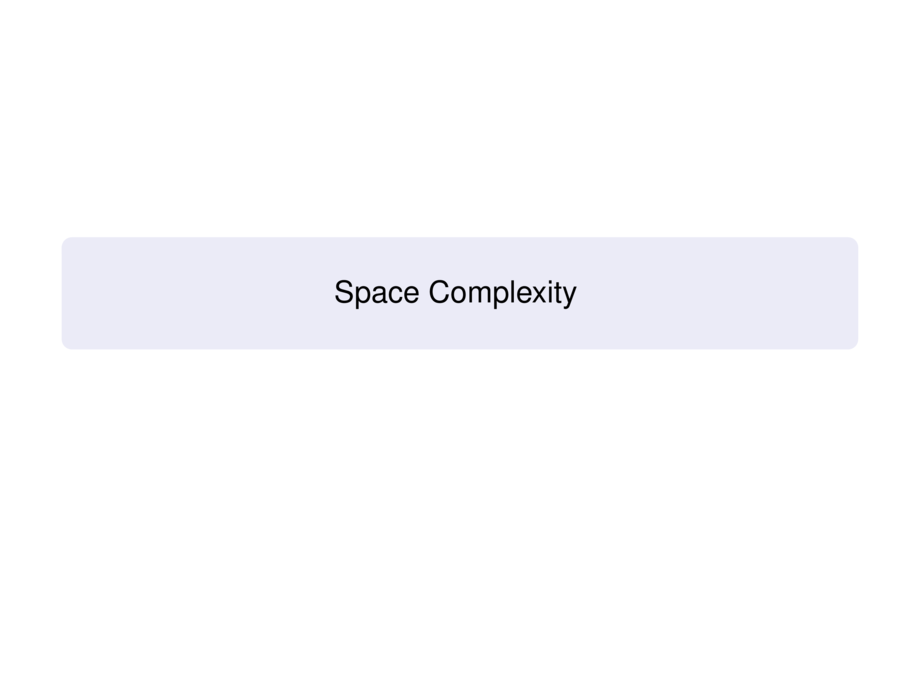



































































































108/122
\begin{frame}{The Class co-NP}
\begin{block}{}
A problem $L$ is in \alert{co-NP} if the complement $\overline{L}$ is in NP.
\end{block}
In other words, the set of instances without solution is in NP.
\pause\medskip
\begin{exampleblock}{}
The question whether a propositional formula is \emph{not} satisfiable is in co-NP.
\end{exampleblock}
\pause\bigskip\medskip
\begin{alertblock}{}
It is \alert{unknown} whether $\text{NP} = \text{co-NP}$.
\end{alertblock}
\pause\smallskip
\begin{exampleblock}{}
It is unknown whether the satisfiability problem is in co-NP.
\end{exampleblock}
\pause
The difficulty is that it has to be shown that a formula
evaluates to \texttt{false} for \emph{every} variable assignment.
\pause\medskip
\begin{block}{Theorem}
If an NP-complete problem is in co-NP, then $\text{NP} = \text{co-NP}$.
\end{block}
Note that there are problems that are both in $\text{NP} \cap \text{co-NP}$.
\bigskip
\end{frame}
\themex{Space Complexity}

